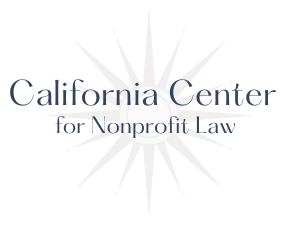
Should a Charity Move From Cash to Accrual Accounting?
Public charities can use either cash or accrual accounting methods. Many charities use cash-basis accounting due to its simplicity. However, cash-basis accounting may be deficient in providing a comprehensive picture of the charity’s finances and assisting in long-term planning. As a result, you may consider whether your public charity would benefit from a move from cash-basis to accrual accounting.
The California Center for Nonprofit Law is here to advise you about the various legal requirements that impact your public charity. Contact our office to learn more about these important issues to keep your charitable organization running smoothly and compliant with all federal, state, and local laws.
Cash-Basis and Accrual-Basis Accounting: Understanding the Differences
The major difference between cash-basis and accrual-basis accounting is when the charity records revenue and expenses. In cash-basis accounting, the charity records the revenue only when it physically or electronically receives it. Likewise, the charity records expenses when they physically leave the charity’s account. Cash-basis accounting is more common in smaller charities, which often have less complex financial records.
In accrual-basis accounting, revenue and expenses are recorded when they are incurred, with the expectation that the physical or electronic transaction will occur later. For instance, if a nonprofit organization provides a service to an individual and sends that individual an invoice for payment, the organization records the revenue from the service now. The organization expects to receive payment in the future when the individual pays the invoice.
Limitations of Cash-Basis Accounting
One major limitation of cash-basis accounting is that it can mispresent the current financial health of a charity. For example, if a charity hosts a large fundraiser, it may have many expenses in a single month leading up to the fundraiser. Donations from the fundraiser may not come in as revenue until a month or more after the fundraiser. As a result, the account balances could make it appear that the charity is low on funds or flush with funds, depending on when one looks at the books. In that respect, the account balances can be quite deceiving, making the charity seem to be in poor or extraordinarily good financial health.
Furthermore, the constant balance disparities can also make long-term planning more challenging. Budgeting for the following year becomes more difficult if the organization appears to be struggling financially in one quarter and then rebounding in the next quarter. Additionally, suppose many of the charity’s regular bills are due at the beginning of the month, or most of the charity’s revenue does not come in until mid-month after invoices are sent out. In that case, the time of the month also may throw off budget calculations when looking at an average balance at the same time each month.
Benefits of Accrual-Basis Accounting
Accrual-basis accounting can have benefits for many charitable organizations. First, recording financial transactions when they are incurred can provide a more accurate financial view of an organization. Rather than being limited to viewing the running balance of an account, a longer view of financial transactions is available through an accrual-basis accounting system. This method of accounting also can generate more detailed financial reports to facilitate long-term planning.
Related revenues and expenses stay together more closely in an accrual-basis accounting system. The delay in a cash-basis accounting system tends to separate revenue from related expenses, sometimes substantially. When all expenses and revenues related to an event, service, or program are closer in time, it is easier to determine the true costs of operating the event, program, or service.
Next, accrual-basis accounting is more transparent for board members, donors, and the public. Transparency tends to increase confidence, as donors can see how their donations are contributing to services and programs, and board members can see how programs and services are increasing revenue and operating efficiently.
Increased transparency may also help your organization comply with regulations and grant requirements. Accrual-basis accounting ensures that your charity follows Generally Accepted Accounting Principles (GAAP), which many grants and funding opportunities require. Some regulatory bodies also require GAAP compliance.
Contact Us Today for Legal Assistance
The California Center for Nonprofit Law focuses its practice on legal matters that affect charities and other nonprofit organizations in California. This unique focus allows us to concentrate on keeping abreast of the ever-changing laws and policies as they develop over time. We are here to represent the interests of your nonprofit organization throughout every stage of your legal matter. Call us at (949) 892-1221, email us at info@NPOlawyers.com, or fill out our contact form online and schedule a consultation about your nonprofit organization today.
